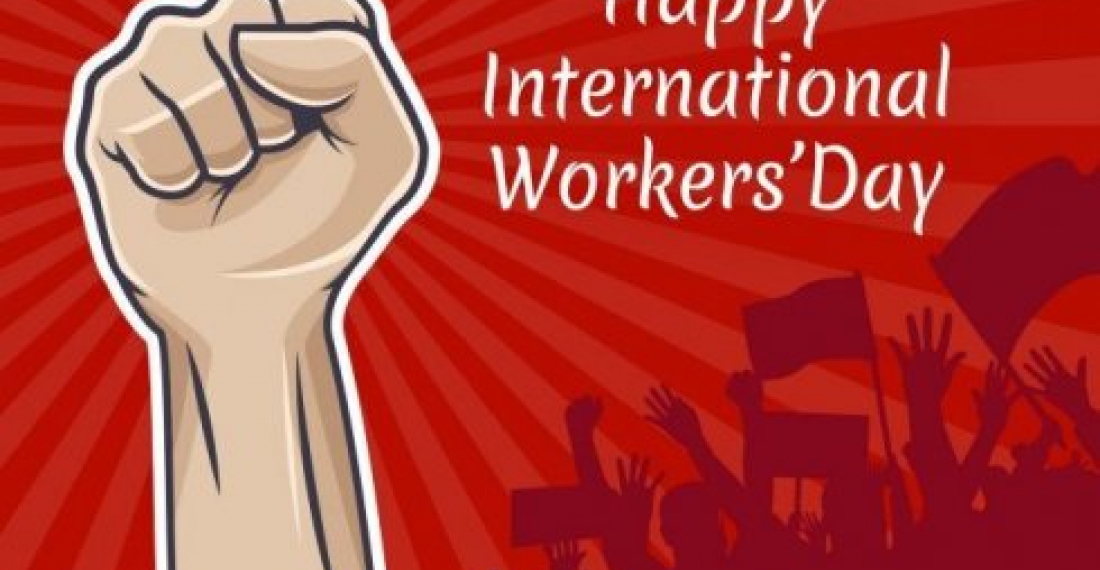May 1st is celebrated world-wide as International Workers Day or Labour Day.
Labour Day or May Day celebrates working class people and their contribution to society, and is an annual public holiday in many countries. The holiday has its origins in the labour union movement in the United States in the 19th century when the industrialists used to exploit the labour class and made them work up to 15 hours a day. The workers rose against this exploitation and demanded paid leaves, proper wages and breaks for the workforce. The eight-hour day labour movement advocated eight hours for work, eight hours for recreation, and eight hours for rest.
The theme of Labour Day 2019 is "Uniting Workers for Social and Economic Advancement". Labour Day or May Day honours the hard work of workers across the world and celebrate their achievements.
In many countries there will be rallies and demonstrations to mark working class struggles and working class solidarity around the world. In some countries events will take place against a background of government intimidation and harassment.
Mayday in the South Caucasus
Mayday festivities used to be held on a large scale in the Soviet Union, but after its collapse the holiday has been largely eclipsed, marked only by a few elderly communists, and this was certainly the case in the South Caucasus republics of Armenia, Azerbaijan and Georgia.
There are however signs of a resurgence of interest, coinciding with increased concers about workers rights, and not least about health and safety issues at the place of work. Trade unions and labour movements in the post communist South Caucasus have been largely weak and ineffective. But it is likely that this is about to change as social issues, including workers rights, become increasingly important.
source: commonspace.eu







